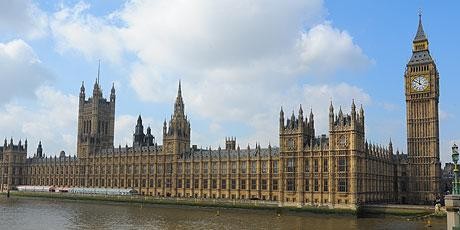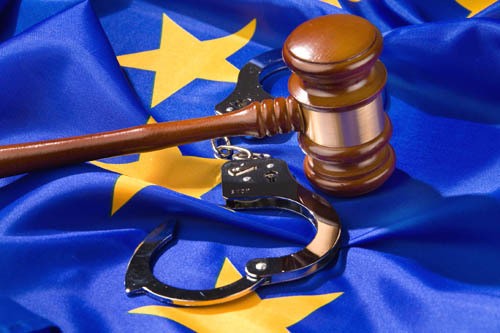Bruges Group Blog
The Revised Political Declaration Introduction So far as we are aware the only material changes in the Withdrawal Agreement (Treaty) are to the NI Protocol, which means that the critical ECJ oversight and Art 184 link to the Political Declaration remain. I am told by UKREP that there are two changes to other Articles in the Treaty but they were una...
The Bruges Group is opposed to the acceptance by Parliament of the Withdrawal Agreement and Political Declaration which has been released today. The Bruges Group has always put the highest priority in maintaining the integrity of the United Kingdom. This agreement provides for a different status for Northern Ireland and therefore has the potential ...
On 28 August Gina Miller applied for judicial review of the decision to prorogue Parliament, seeking a declaration of the court that the Prime Minister's decision to tender this advice was unlawful. On 6 September, the High Court of England and Wales granted Ms Miller permission to bring the application but then unanimously dismissed the claim. The...
Initially published on 13th September and updated on 26th September With the Brexit pea soup not looking any clearer whatsoever, Boris Johnson's hopes of an early general election are fading by the minute as I type this and of course Parliament being prorogued from the evening of Monday 9th September until 14th October. It's interesting to se...
It often thought that lobbying, the professional representation of private interests to governments and subsequent attempts to influence policy, was confined to industrial-like political powerhouses of Washington D.C., the capital of the free world, and Brussels, the de facto capital of the European Union. In the US, the currency within lobbying is...
Leaving the EU Brexit Hub Monday, 30th September 20191pm until 2.30pm With the speakers; Rt Hon Sir John Redwood MPFormer Secretary of State and serving Privy CounsellorRt Hon. Arlene Foster, MLALeader of the Democratic Unionist PartyRt Hon. Mark Francois MPEuropean Research Group& Martin Howe QCLawyers for BritainAGENDASpeeches and press confe...
Over the past three or so years, us Brexiteers have been labelled with all sorts of names such as fascists and racists, among others. There is an ever-growing perception that we are all over 80, own grand estates and are on the far-right wing of the political spectrum; let me tell you we are not! I have spoken to people from all backgroun...
The following article and above PDF are speeches by Richard Tice MEP for the Brexit Party and also property businessman; Swedish-British billionaire businessman Johan Eliasch who is CEO of sportswear giant Head; Sir John Nott the former Secretary of State for Trade and Industry then Defence under Margaret Thatcher; Peter Lilley the former Sec...
The Scottish National Party's minority administration in Edinburgh is trying to contribute to the attempt to foil Brexit and the struggle to achieve sovereignty and independence for the whole of Britain. But it's not doing well… While efforts in the British parliament to halt our exit from the EU are being roundly defeated, pro-EU fervour has conti...
Sir Austen Chamberlain, speaking about Germany's violation of the Treaty of Locarno, remarked: "It is not so long ago that a member of the Diplomatic Body in London, who had spent some years of his service in China, told me that there was a Chinese curse which took the form of saying, 'May you live in interesting times.' There is no doubt tha...
"Life is very short, and there's no time, for fussing and fighting, my friend." (John Lennon and Paul McCartney – 1965 "We Can Work It Out")We had one deadline - 29th March – for leaving the EU, which was inexplicably lost in the mists of political time. (Political time is like real time, but without reality, adherence to deadlines, or t...
Below is John Redwood's letter to Geoffrey Cox. The Attorney General has not yet replied, and he needs to.Given the government's difficulty in replying to this, John Redwood is re-issuing it and encourage all to circulate it more widely. The conventional media refuse to ask these questions of the government and supporters of the Agreement. De...
As Geoffrey Cox, Attorney General, advises: there is no internationally legal means of escaping the Backstop. 'The legal risk remains unchanged that if through no such demonstrable failure of either party, but simply because of intractable differences, that situation does arise, the United Kingdom would have ... no internationally lawful mean...
The backstop is illegal. When speaking with international lawyers they mention a number of difficulties that the EU will discover if they actually try to implement the backstop. The competence of the 'Withdrawal' Agreement to establish the backstop exceeds its lawful ability, it is Ultra Vires.Given indications from the President of the...
Dear Geoffrey, I am glad you are seeking to replace the unacceptable Irish backstop which is written into the Withdrawal Agreement which was vetoed in the recent Commons vote. There are other features of the Withdrawal Agreement which I and other MPs cannot accept which also need attention in the national interest. Under the draft Withdrawal Agreem...
Analysis of Theresa May's Brexit proposal. Can the UK claim to be an independent state? Introduction The current draft of the agreement "on Withdrawal of the UK from the EU and EURATOM" (the "Agreement") can be found here... https://ec.europa.eu/commission/files/draft-agreement-withdrawal-united-kingdom-great-britain-and-northern-ireland-euro...
Steve Baker MP presents five videos updating Brexit and explaining its significance: 1 - Self-government and trade 2 - The Withdrawal Agreement 3 - What is possible: the internal market vs a Free Trade Agreement 4 - What's wrong with Chequers, the Government's plan? 5 - It is time to make an advanced FTA work for the who...
Contact your Member of Parliament Theresa May has decided to pursue a policy of Brexit in name only (BRINO). This arrangement will be worse than our current membership of the European Union as we will then be a vassal state. If this policy is implemented the electoral consequences for the Conservative Party will be dire. I urge all members of...
Today Great Britain stands at a crossroads; it is here where we must decide whether we will stand strong and boldly go forward or whether we will cower before a group of unelected bureaucrats thrust out from power in their home countries. Our Brexit negotiations have featured heavily in the news recently over the Government's supposed plan to stay ...
Tuesday 20th March 2018, from 1pm - 3pm How the Brexit negotiations should be handled.The man who delivered the Estonian Unilateral Declaration of Independence in 1991 to Mikhail Gorbachev, the Head of the Soviet Union, advises the UK on Brexit. Location: Committee Room 20The House of CommonsWestminster London SW1A 0AA(via the Cromwell Entran...
Photograph: DG EMPL, Flickr
British Prime Minister Theresa May outlined her government’s vision for Brexit in a speech delivered in Florence on September 22. In a bid to breathe new life into ongoing UK-EU negotiations, she presented proposals regarding the rights of EU citizens living in the UK, the length of a “transition period” after 2019, and the sum Britain might pay during that period. Rather than inspiring counterproposals or constructive criticism from EU leaders, May’s speech generated little more than the same refrain repeated from Brussels since negotiations began: that more “clarity” was needed, and that “sufficient progress” would have to be made before talks could advance. This lacklustre, somewhat apathetic EU position does not look like the result of sincere consideration of May’s proposals, or a constructive attitude towards the talks. Rather, it looks a lot more like a deliberate tactic to either prevent Brexit, or punish Britain.
Some might find this approach perplexing. After all, is it not in both parties’ interests to negotiate a mutually-beneficial outcome? Not necessarily…
To better understand Brussels’ foot-dragging in Brexit talks, it helps to understand the incentives driving it. First and foremost, the EU is a political union. Economic, social, or environmental considerations may all have contributed to the appeal of ever-closer union, but they remain secondary to the very political objective of federal statehood. Indeed, from the days of Jean Monnet and Robert Schuman at the dawn of European integration, to more the more recent mandates of José Manuel Barroso, Viviane Reding, or Guy Verhofstadt, the goal of a pan-European nation state is no secret.
Grasping that European statehood is the EU’s ultimate objective is essential for the UK government’s Brexit Secretary David Davis and his team of negotiators as they engage with their counterparts. It means that, no matter how amenable the UK is to facilitating trade or subsidizing the EU’s budget, the bottom line in Brussels remains the preservation of their political project. The win-win economic gains desired by the UK are not necessarily desired by the EU, for whom a successful Britain would signal there is no longer any economic appeal to remaining in the bloc. A strong UK economy poses an existential threat to European integration.
This explains why trade negotiations have not even begun, despite both parties already sharing near-identical norms and regulations. It is also why the EU seems in no rush to maintain access to the UK’s large consumer market, with Britons buying more from the EU than the other way around. In order to preserve the union, the EU’s only options are to ensure the UK remains inside, or fails outside.
The Union Jack flies over the Houses of Parliament in Westminster.Photograph: Rian (Ree) Saunders, Flickr With Article 50 triggered and Brexit negotiations well underway, the UK government looks like it’s carrying out the instructions it received from 17.4 million voters last summer. At best, Britain and the continent will establish a mutuall...
[pb_row ][pb_column span="span12"][pb_heading el_title="Article Sub Title" tag="h4" text_align="inherit" font="inherit" border_bottom_style="solid" border_bottom_color="#000000" appearing_animation="0" ]How a compromise agreement may keep Britain subject to aspects of the EU.[/pb_heading][pb_heading el_title="Date" tag="h5" text_align="inherit" fon...
Contact us
246 Linen Hall, 162-168 Regent Street
London W1B 5TB
Director : Robert Oulds MA, FRSA
Founder Chairman : Lord Harris of High Cross
















